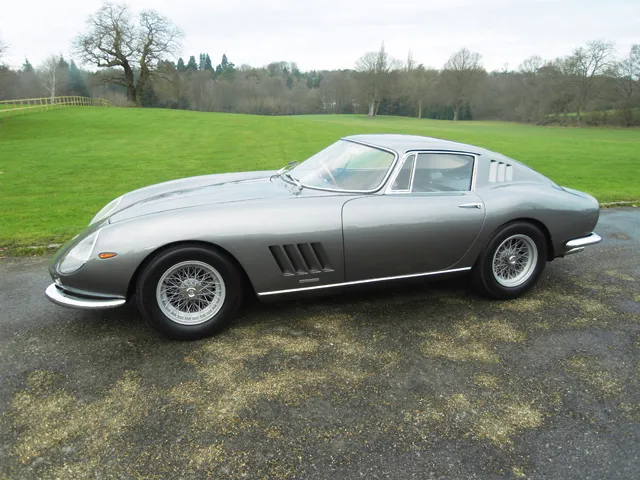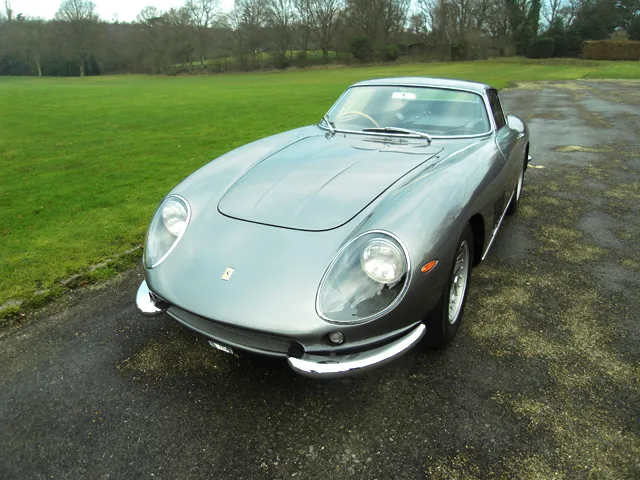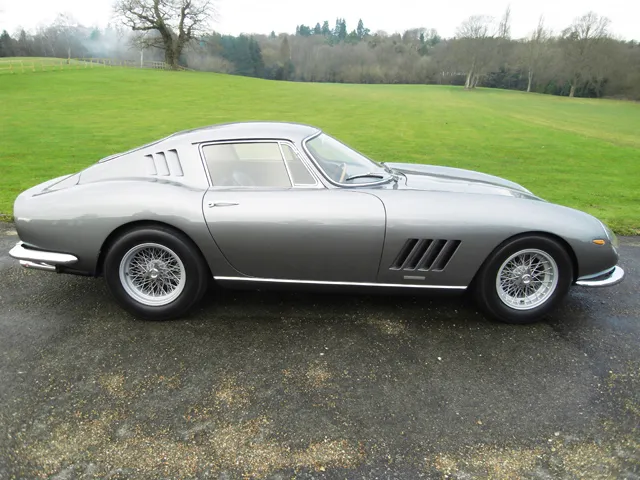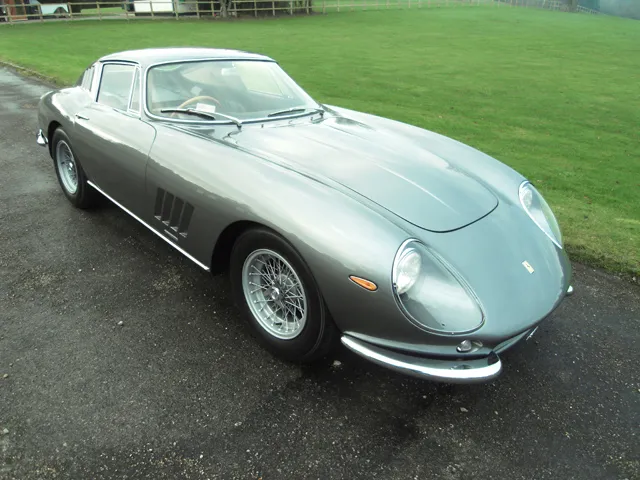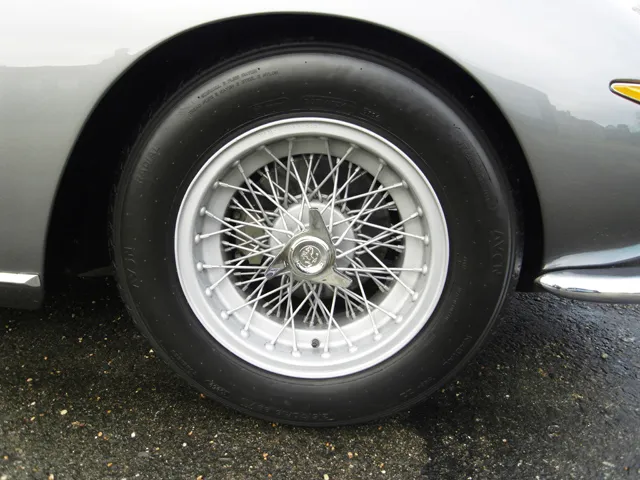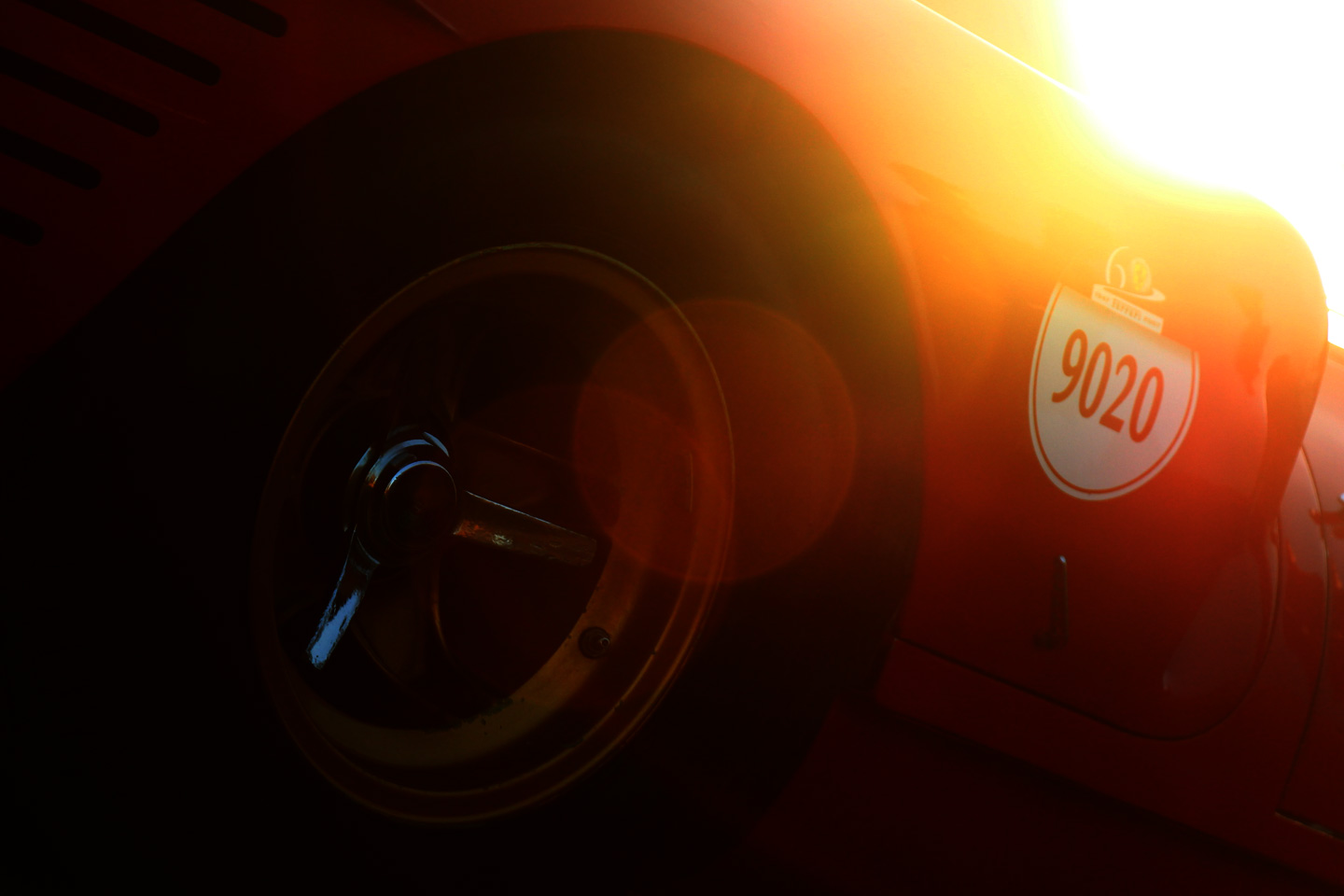300 bhp, 3,286 cc Tipo 213 overhead camshaft V-12 engine, six Weber carburettors, Tipo 563/1015 five-speed manual gearbox in rear-mounted transaxle, Tipo 563 chassis, four-wheel independent suspension with A-arms, coil springs and telescopic shock absorbers, and four-wheel hydraulic disc brakes. Wheelbase: 94.5"
- An original six-carburettor example, delivered new to South Africa
- Matching numbers
- Fully sorted and in outstanding condition
- Iconic Pininfarina styling, Scaglietti-crafted body
In many ways, the Ferrari 275 GTB is often lauded by enthusiasts and the media as the last of the “classic Ferraris.” Conceived and executed under the guidance of Enzo Ferrari himself, the 275 GTB was introduced at the 1964 Paris Auto Show and marked a natural evolution from its immediate predecessors, the 250 GT SWB Berlinetta and Lusso. It was also by far the most advanced road-going Ferrari produced at the time of its introduction, and it served as a production test-bed for several notable engineering advances.
Designed by Pininfarina and executed by Scaglietti, the 275 GTB was an especially organic but aggressive and purposeful design. Named number three on Motor Trend's list of the 10 greatest Ferraris of all time, many enthusiasts have been drawn to its instantly recognisable looks alone, before opening its hood or even settling into the driver's seat.
The 275 was considered by many to have been the finest production Ferrari ever built, combining the strong pedigree of its legendary road-racing forebears with sufficient creature comforts and a new fully-independent rear suspension to produce a superlative high-speed, long-range GT car. The engine was based on the race-proven Colombo-derived V-12, now displacing 3,286 cc to produce 280 bhp with the standard triple Weber carburettor setup and 300 bhp with the optional and desirable set of six Weber 40 DNC/3 dual-choke carburettors.
With its sensuous lines, covered headlights, long hood, short rear deck, neat Kamm tail, abbreviated bumpers, low oval air intake, “egg crate” grille and limited brightwork highlighting the 275 GTB’s purposeful design, it literally suffers from no “bad angle.” In particular, its long, slim nose and four side-ventilation louvers per side gave it a shark-like appearance, a theme that could also describe its ample performance.
With the final evolution of Ferrari's relatively small-displacement Colombo V-12 under its hood, the 275 GTB was an extraordinarily rev-happy machine, even by Ferrari standards. In a period road test, legendary Hollywood star and automobile enthusiast Steve McQueen described the smooth action of the five-speed manual transaxle as “like sliding a knife through butter.” It helped get the most out of the Colombo's enlarged 3,286 cc displacement. Weighing merely 1,200 kg, the 275 GTB easily accelerated from rest to 60 mph in a scant 6.3 seconds.
Today’s collectors divide the 275 GTBs into the early (short-nose) and late-production (long-nose) cars. As with many things Ferrari, the reality is not so simple. While high-volume carmakers produced endless quantities of nearly identical cars, Ferraris were still built, to an astonishing degree, by hand. As improvements were devised, they were incorporated into production, often with the very next car in the production sequence. In other cases, features from earlier production would appear on later cars, to the delight of their owners and to the consternation of Ferrari historians and marque experts. The changeover to a longer-nose body design, which was introduced at the 1965 Paris Salon with production beginning in early 1966, was the result of the alarming incidence of frontal lift at high speeds caused by the short-nose setup.
Chassis 07699, the 275 GTB/6C offered here, was completed on 30th July, 1965 and finished in the understated and stylish combination of Grigio Fumo (code 106 E8) with a black leather interior and red carpets, a black Nardi steering wheel and black leather-covered dash complementing the well-appointed interior. Concealed under the bonnet were six big downdraught Weber carburettors to give this 275 that all-important performance advantage on the highly competitive Club racing circuit of the mid 1960s for which it was destined.
This particular 275 GTB/6C was delivered to T.A.K Motors in South Africa in August 1965 and sold to its first owner, stockbroker and racing enthusiast Hugh McNeil, to race in Club events. The following year, obviously impressed by the new long-nose variant of the 275 GTB that was now available, McNeil appointed the Ferrari main agent in Cape Town to have the undamaged short-nose removed and a new, factory-supplied long-nose fitted to his car. The work was carried out by noted, imported, Italian coachbuilder Pierino Scalco, who had also worked on a number of other highly important racing Ferraris, including a 250 GTO and a P3 racing prototype. A photograph of the work-in-progress taken from the Southern Equatorial Ferrari Automobili Club (SEFAC) magazine is included in the file.
It is understood that the car then passed through the hands of a Mr. A. Watson before being sold to noted South African racing driver G.J. Van Zyl of Cape Town, who continued to have the car looked after by the Viglietti brothers in Cape Town. Included in the file on this car are bills for a full engine rebuild by Viglietti Motors, on behalf of Van Zyl in 1982, with all replacement original Ferrari parts coming from Graypaul in Loughborough, England.
In 1986, it was sold to English collector Tom Walduck, who had the car imported to the UK and used it for many years. The car had FIA papers issued and all of the front suspension and steering components crack tested prior to participating in numerous events, including the 2001 South African Western Province Motor Club race meeting, the 2001 Tour España and the 2004 275 Factory Tour. During this period, the car was finished in red with white and blue racing stripes, and many photos of the car's exploits are included in the file.
The previous owner had the car repainted in its original factory colour of Grigio Fumo and has spared no expense in ensuring that the car presents and drives beautifully.
